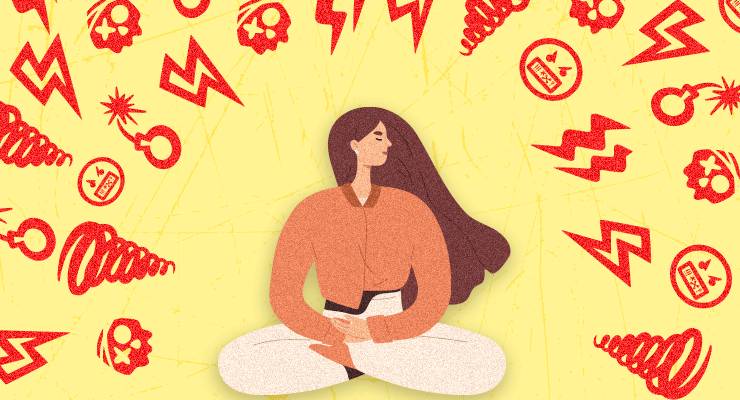
I don’t identify with the trope — largely perpetuated from within the profession — that doctoring is a noble occupation. That idea can be deconstructed as equal parts marketing and masturbation.
What I do cherish about this job is receipt of trust from strangers or acquaintances as they share intimate details of their life. It’s a privilege and on top of that the unvarnished content helps with the constant recalibrating of what I understand to be the average day-to-day experience of the average person, the collective bell curve of “normal”.
Not that we want to live our lives in constant reference to a bell curve, but that curve informs our expectations of what our life could or should be like. Those expectations are biased, informed by what other people choose to present publicly and are particularly distorted by social media.
This came to mind last week after seeing a mainstream op-ed lamenting Australia’s misplaced balls. It’s an unfortunate phrase that should have exited the lexicon around the same time as “sheila” or at the very latest once people stopped buying those humorous signs detailing the consequences for weeing in the backyard pool.
Why do we need to have balls? And assuming we can locate them, what is the appropriate number of balls to have? Despite the antiquated phrasing the concept of possessing an adequate testicular stockpile is acutely relevant but has a new, better name — resilience.
Resilience is a quantifiable innate resource that offsets the past, present and imminent shit bits of life and allows us to exist as a functional member of society (aka “adulting”). We can actively or passively generate resilience; it can be bought or gifted, and it can be thieved.
Opening balances of resilience vary and are subject to factors well outside our control, such as the circumstances of our birth and upbringing. Similarly, generating resilience is a learned skill that isn’t just picked up along the way. Our capacity for manufacturing resilience can be destroyed by trauma.
When the resilience runs out we become burnt-out, depressed, suicidal, or all of the above. If you talk to your doctor about this you will be offered counselling, meditation or medication. These are not cures but rather tools to facilitate functionality and the gradual resupply of resilience.
The last two years have seen Australians access a record number of mental health services, a number that usually peaks this time of year and is inevitably underestimated, excluding from the count people denied access by the barriers of cost and availability.
But getting back to the point about our expectations and understanding of what is “normal” — if we have unrealistic expectations about what our life could or should be like, then our resilience is devalued and consumed faster. In that sense the modern paradigm encouraging public discussion of mental health is a positive thing.
Publicly dissecting mental health doesn’t conjure a solution in the form of more mental health practitioners and better funding, but it goes some way to recalibrating our understanding of what “normal” is. Even if that post about “speaking up” seems a bit twee, it helps balance the rest of the doomscroll laden with cafes, parties, first homes, babies, success and fulfilment.
I’m not saying life’s a bitch and then you die (Nas got there first) but until we achieve intersectional utopia there will inevitably be shit bits, and resilience — not scrotum ownership — is your greatest asset in getting through those bits intact. I hope you find a way to stock up on resilience over the holiday period as we wait to see what sort of bollocks 2022 has to offer.








Resilience = Stoicism.
‘Resilience’ appeared several years ago as supposed climate response (along with carbon footprint network etc.), supported by the Rockefeller Foundation (Rockies were formerly Standard Oil/Exxon majority shareholders); more ‘greenwashing’ avoidance of global warming responses i.e. simply ‘toughen up’.
They had a global project on ‘Resilient Cities’ but was dropped few years ago…..
As my dear mother used to say,”Pull your socks up”.
Thank you Mitchell Squire, we do need to talk more about resilience and less about “you can’t possibly be expected to cope… with A, B or C…..”